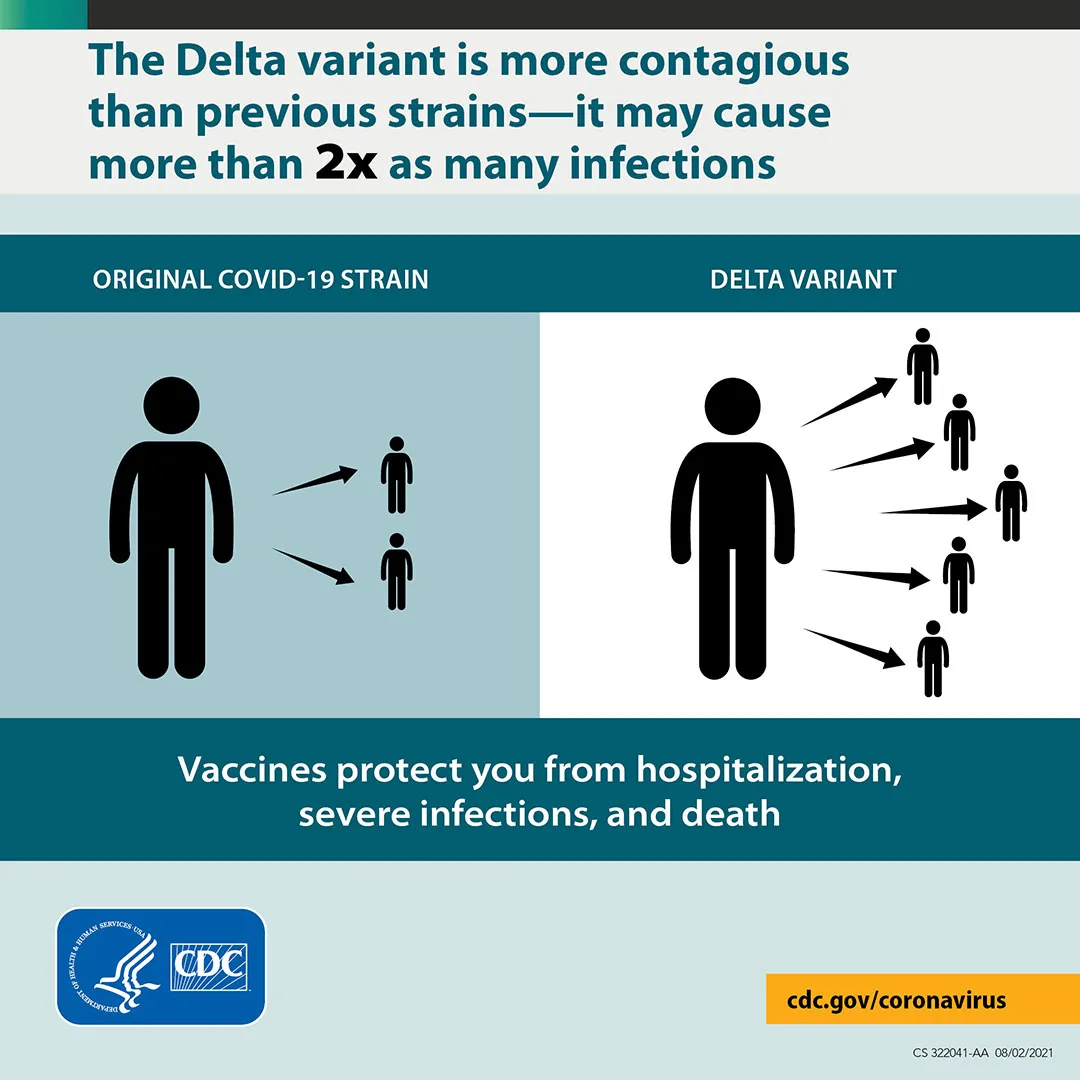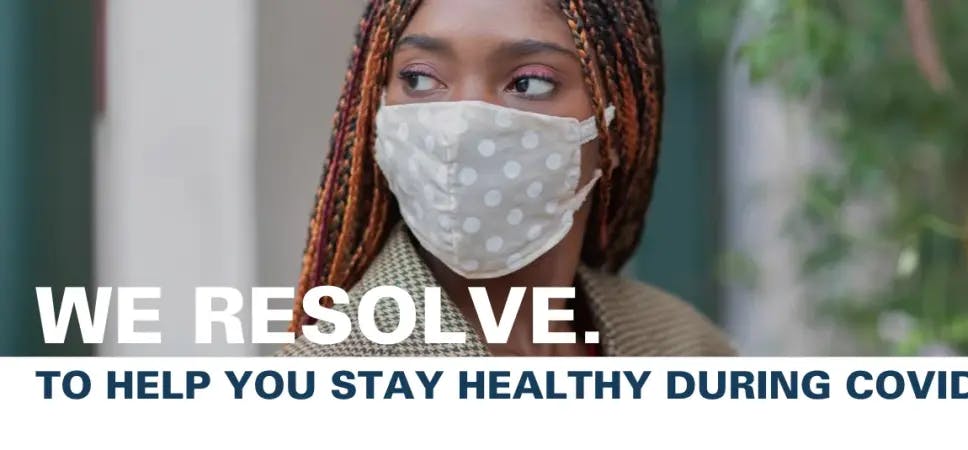
With the state slowly reopening, it can be difficult to know where and when to wear a mask. Does it matter if you’re vaccinated? What if you have kids who aren’t? How do the new COVID variants play in?
These are common questions. We’re here to help you make sense of the latest guidelines so you can keep yourself, your family, and your community safe.
The Delta variant is more contagious than previous strains of covid-19.
As of late July, there had been 9,053 covid cases reported in North Carolina over a seven-day period. Compared to 5,441 cases in the preceding seven days, that’s a 66% increase. Within three weeks, hospitalizations doubled.
If you’re vaccinated
As of June, North Carolina lifted many restrictions for vaccinated people. But recently we’ve seen an increase in COVID cases nationwide, largely due to the more contagious Delta variant. That means it’s still too early to let our guard down.
Recently the Center for Disease Control (CDC) recommended vaccinated people wear a mask in public indoor settings in areas of substantial or high transmission. I, however, am willing to go one step further and recommend that we wear masks in all public indoor settings to protect ourselves and our neighbors.
Early research shows that the vaccines offer protection against severe illness from the Delta variant. The vast majority of COVID cases in recent weeks are among unvaccinated individuals. But breakthrough infections among the vaccinated can happen. And a vaccinated person who gets the Delta variant can spread it to their neighbors and loved ones.
Even if you have been vaccinated, wearing a mask when in public places is a good idea. In some parts of the state, mask wearing is required due to State of Emergency orders.
While most adults in North Carolina have received at least one dose of the vaccine, many people—including children under 12—aren’t vaccinated. Wearing a mask in public can help protect children, immunocompromised people, and others who have not been vaccinated.
Everyone—vaccinated or not—must wear a face covering in certain high-risk settings. These include:
Public transportation
Doctor’s offices and other health care settings
Childcare settings, including schools and camps
Nursing homes
Homeless shelters
Correctional facilities
The state also strongly recommends wearing masks at large indoor gatherings like concerts and sporting events.
Continue to be mindful of others, and follow the guidance of your workplace and local businesses.
If you’re unvaccinated:
If you are not vaccinated against COVID-19, you are at greater risk of catching and spreading the virus. Almost all new COVID cases in North Carolina—94%—are in unvaccinated people.
People who are not vaccinated should continue to exercise personal responsibility to protect themselves and their neighbors. The CDC asks unvaccinated individuals to continue to take precautions at all indoor settings and outdoors where social distancing is not possible.
To help curb the pandemic, consider getting vaccinated if you can. I understand this is a highly personal choice. If you are on the fence, I encourage you to read how this pandemic is quickly becoming a serious threat to unvaccinated populations.
Continue to practice the three Ws: Wear a mask, wash your hands, and wait six feet apart. This will help keep you safe in addition to children, people going through chemotherapy, and others who can’t be vaccinated or have compromised immune systems.
High-risk settings continue to require face coverings. This includes places like airports, clinics, and schools. Businesses and workplaces may also decide to require masks inside.

Up-to-date information and resources for our members can be found at BlueCrossNC.com/Coronavirus. If you live outside of North Carolina, please follow your local and state guidelines.
Want to learn more about health insurance? Click the button below to reach out to the agent on this webpage.
Ready to get started?
Related Articles

6 Mask Myths Debunked
Health experts agree that one of the best ways to curb the spread of COVID-19 is to wear a cloth face covering. The Centers for Disease Control and Prevention (CDC) recommends wearing fabric face coverings in public and around people who don’t live in your household. This is particularly important when it’s difficult to keep six feet of distance between yourself and others.
As more health agencies and local governments ask people to wear face coverings, some myths have gained traction. To help you sort through fact and fiction, we’ve debunked some of the most common myths.
Blue Cross NC

Top 10 Myths About Childhood Vaccines
The effects of this are all too well known. As recently as December of 2014, we saw an outbreak of Measles that affected over a hundred children as a result of unvaccinated children and adults. All of which could have been avoided with proper preventative care.
Unfortunately, there are many myths about vaccines that encourage or frighten parents into not vaccinating their children, and as a result, infections can easily spread among the unvaccinated. I want to take a few minutes to share some of the most commons myths about childhood vaccines and talk about the facts.
Dr. Larry Wu

No Flu For You: 5 Flu Shot Myths Debunked
Maybe you’re ready to go and are rushing to Target because they’re offering discounts to shoppers who get the flu shot as an incentive. Great! You know the importance of getting the flu shot, not just for yourself but for your loved ones, too.
But maybe you’re not so ready. Maybe you’ve heard something that’s swayed your opinion this year. Something that scared you or made you think twice. We get it. Every year rumors circulate about getting vaccinated, from the outlandish to the plausible. And it’s hard to know what’s true and what’s not, especially in this age of lightning fast communications.
Allison Bonner